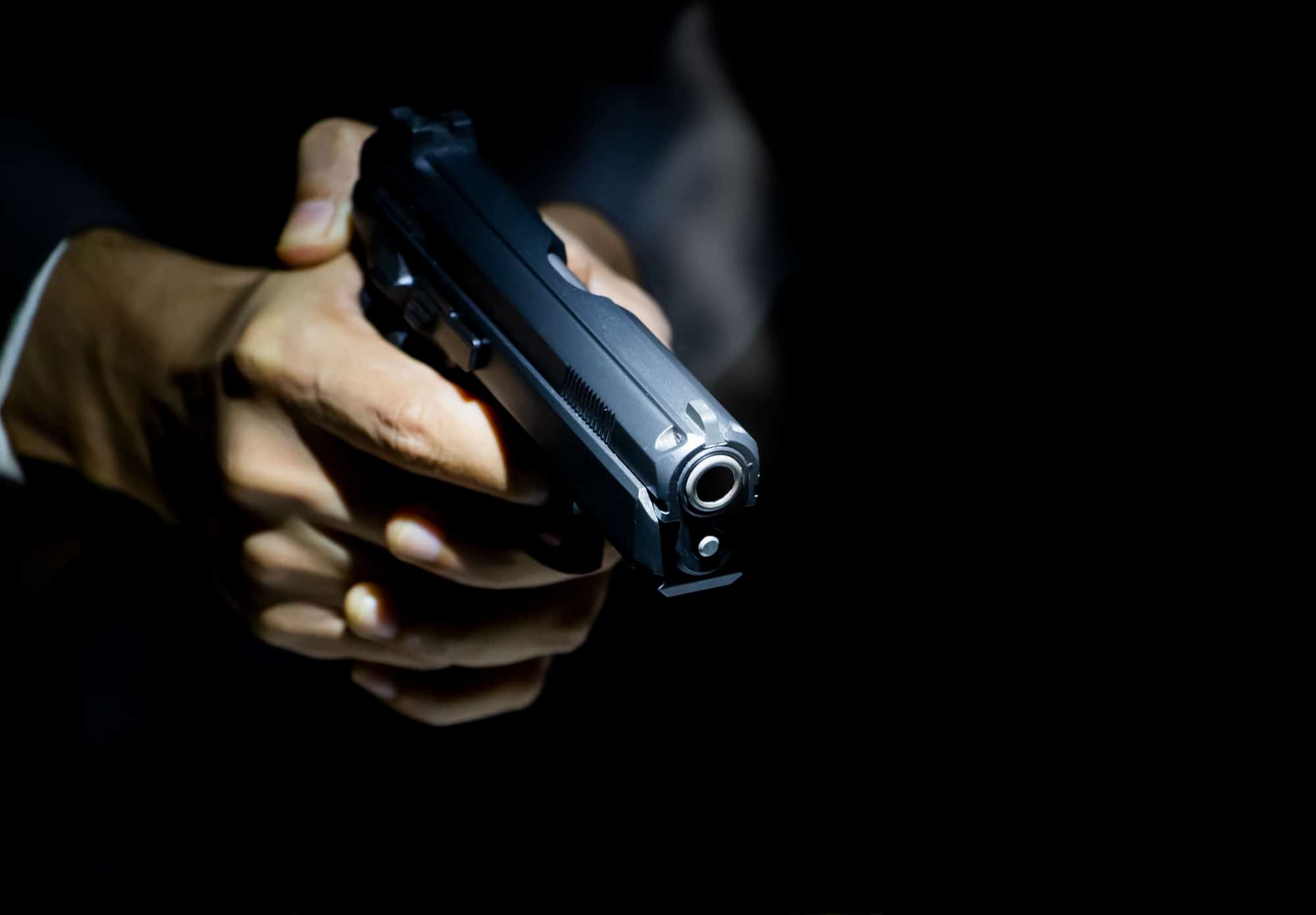When the charges are this serious, you need an experienced violent crime defense lawyer to represent you and fight for your rights. With years of experience in the criminal justice system, Matt Shafran will use all the tools at his disposal to advocate for you during this critical time.
Types of Violent Crimes Punishable by Criminal Laws in Florida
Violent crime is a criminal offense that is committed with the use of force and violence, as the name infers. However, this type of classification can also include a crime that involves the threat of force or violence, even if it wasn't carried out.
The definition of a violent crime is very broad and covers several types of criminal activity, such as:
- Homicide
- Robbery
- Assault
- Battery
- Kidnapping
- Child Abuse
- Conspiracy to Commit a Violent Crime
Prosecution & Penalties for Violent Crimes
Although the penalties for violent crimes may vary depending on the offense, first-degree murder is the only violent crime conviction that is punishable by the death penalty. The second most severe penalties are life sentences and prison terms of more than 30 years.
Murder (Homicide) Charges and Penalties
As defined by Florida Statute 782.04, murder is the unlawful killing of a human being. Under this statute, an act of murder will be charged as a federal crime and tried in a higher court. The charge is considered a life felony and classed as second-degree murder. If the murder was not the original intent of the crime, the charge is third-degree murder, a second-degree felony, and is punishable by 15 years in prison and/or a fine not to exceed $10,000.
Vehicular Homicide Charges and Penalties
Florida Statute 782.01 describes vehicular homicide as the killing of a human being or an unborn child by harming the mother due to the reckless driving of another. A conviction can result in one of two types of punishment, depending on the circumstances of the crime.
A vehicular homicide charge is a second-degree felony and is punishable by a 15-year prison sentence and/or a fine not to exceed $10,000. If the culprit was aware that the crash had occurred and didn't try to help the victims, the charge becomes a first-degree felony. It is punishable by a 30-year prison sentence and/or a $10,000-$15,000 fine.
Robbery Charges and Penalties
According to Florida Statute 812.13(1), robbery is defined as the taking of money or property with intent to either temporarily or permanently deprive the owner of the money or property. Depending on the circumstances and severity of the crime, the culprit can be charged with a first- or second-degree felony.
If the robbery included the use of a firearm, deadly weapon, or other weapon, the charge becomes a first-degree felony. A conviction can result in a 30-year prison sentence and/or a fine of $10,000-$15,000. If no weapon was used, the charge is a second-degree felony. A conviction can result in a 15-year prison sentence and/or a fine of no more than $10,000.
Assault Charges and Penalties
Assault is defined in Florida Statute 784.011 as the intentional, unlawful threat by word or act to commit violence against a person and having the physical ability to do so. In addition, the victim must have a deeply rooted fear that violence is imminent. The charge for this offense is a second-degree misdemeanor. It is punishable by a prison sentence of 60 days and or a fine not to exceed $500.
However, if the use of a weapon is involved, the charge becomes aggravated assault, a third-degree felony punishable by a prison sentence of 5 years and/or a fine not to exceed $5,000.
What "Assault with a Deadly Weapon" Means in the State of Florida.
Assault with a deadly weapon is prosecuted as aggravated assault, a felony. The difference between a "deadly weapon" and a "weapon" is that a deadly weapon's purpose is to kill. Using a rock as a weapon can result in death, but since the rock was not designed specifically to kill, it is not considered a deadly weapon.
Battery Charges and Penalties
You've probably almost always heard the terms assault and battery together, but they are actually separate crimes. Florida Statute 784.03 covers the felony battery offense, which entails intentionally touching or striking someone against their will or intentionally causing bodily harm. The charge is a first-degree misdemeanor and, if convicted, is punishable by one year in prison and a fine not to exceed $1,000. If the culprit has a previous battery charge, the charge will become a third-degree felony, and if convicted, it is punishable by five years in prison and/or a fine not to exceed $5,000.
The more serious charge of felony battery, covered in Florida Statute 784.041, is made if a person inflicts great bodily harm, permanent disfigurement, or permanent disability. The culprit is charged with a third-degree felony and, if convicted, punishable by five years in prison and/or a fine not to exceed $5,000.
Aggravated battery takes the charge a step further. It involves the use of a deadly weapon, as outlined in Florida Statute 784.045. This offense is a second-degree felony and is punishable by fifteen years in prison and/or a fine not to exceed $10,000.
Kidnapping Charges and Penalties
Florida Statute 787.01 covers kidnapping offenses, including kidnapping a child. The offense is defined as forcibly, secretly, or by threat confining, abducting, or imprisoning someone against their will. The charge is a first-degree felony and is punishable by thirty years in prison and/or a fine not to exceed $15,000.
Kidnapping a Child Charges and Penalties
Anyone who kidnaps a child under the age of 13 is charged with a life felony, and if convicted, the crime is punishable by a prison term not to exceed life imprisonment or a minimum of 25 years followed by probation for the rest of the culprits natural life, and/or a fine not to exceed $15,000.
False Imprisonment Charges and Penalties
False imprisonment occurs anytime an individual keeps another person against their will. The imprisonment can be via physical restraint, threat, or keeping a person in secret against their will. It is a felony offense, and charges involving a minor may result in a penalty of up to life in prison. False imprisonment is a serious charge.
Many individuals find themselves surprised when faced with such a charge. A common example is a couple who gets into an argument, one partner takes the other's phone, and either locks them in a room or physically restrains them from leaving the scene. These acts can be considered false imprisonment and you may face felony charges as a result of what you perceived to be a bad argument.
Other serious cases involve sex trafficking and prostitution, where individuals are held by force or threat against their will and coerced into acts they would otherwise not participate in. These charges are extremely serious and may also result in life in prison.
Child Abuse Charges and Penalties
Florida Statute 827.03 defines child abuse as battering, torturing, caging, maliciously punishing, and/or intentionally harming a child. The charges and penalties for these acts are outlined below.
- Aggravated child abuse: first-degree felony, thirty years in prison, and/or a fine of $10,000-$15,000.
- Child neglect: second-degree felony, fifteen years in prison, and/or a fine not to exceed $10,000.
- Abusing a child: third-degree felony, five years in prison and/or a fine not to exceed $5,000.
- Child neglect (no injury): third-degree felony, five years in prison, and/or a fine not to exceed $5,000.
Carjacking Charges and Penalties
Florida Statute 812.133 outlines carjacking laws and penalties in the state of Florida. The crime is charged as a first-degree felony, and if convicted, carries a required minimum prison sentence of 21 years with up to thirty years in prison, thirty years of probation, and up to $10,00 in fines.
If a weapon is used, the crime becomes punishable by a required minimum sentence of 48 months and up to life in prison. If a person is convicted of possession of a firearm while committing a carjacking charges become much more serious, and the penalties more severe, depending on the circumstances. The culprit could receive one of these mandatory minimum sentences:
- 10-year minimum prison term if in possession of a gun.
- 20-year minimum prison term if the gun was discharged.
- 25-year minimum prison term if someone is injured or killed by the gun.















